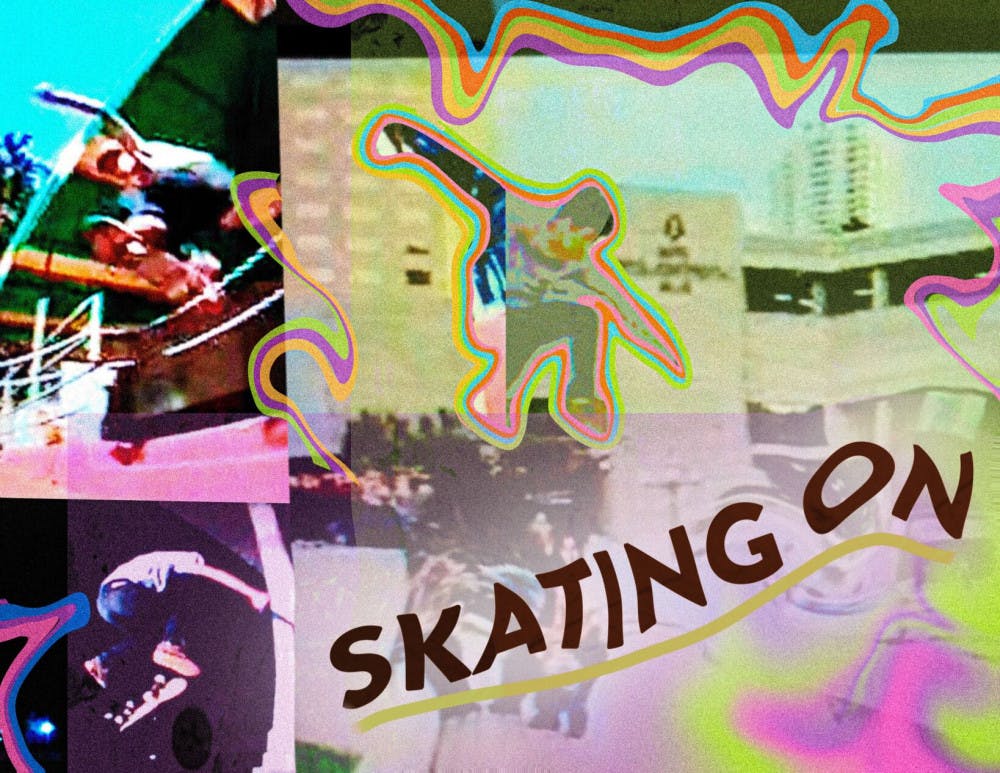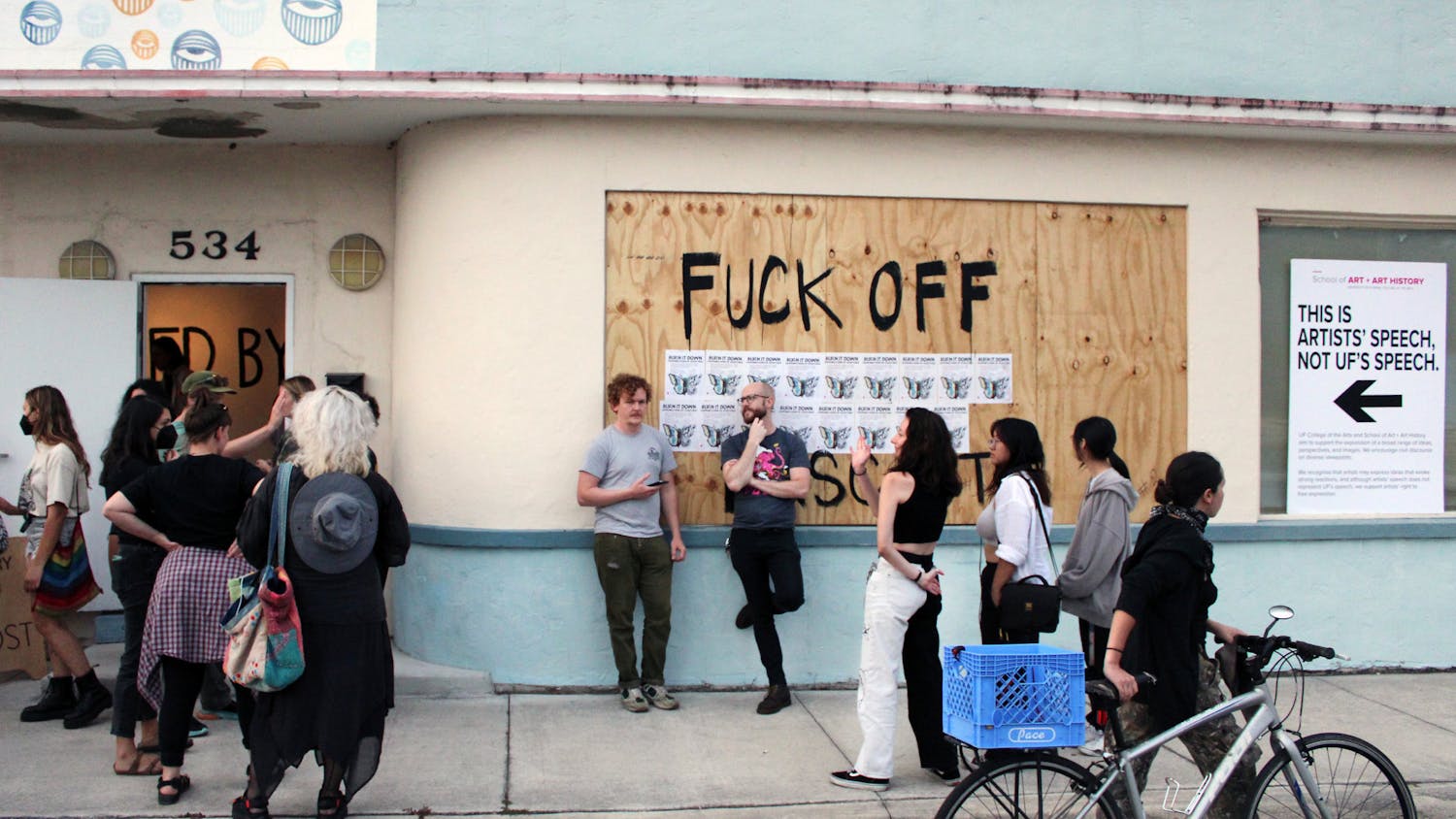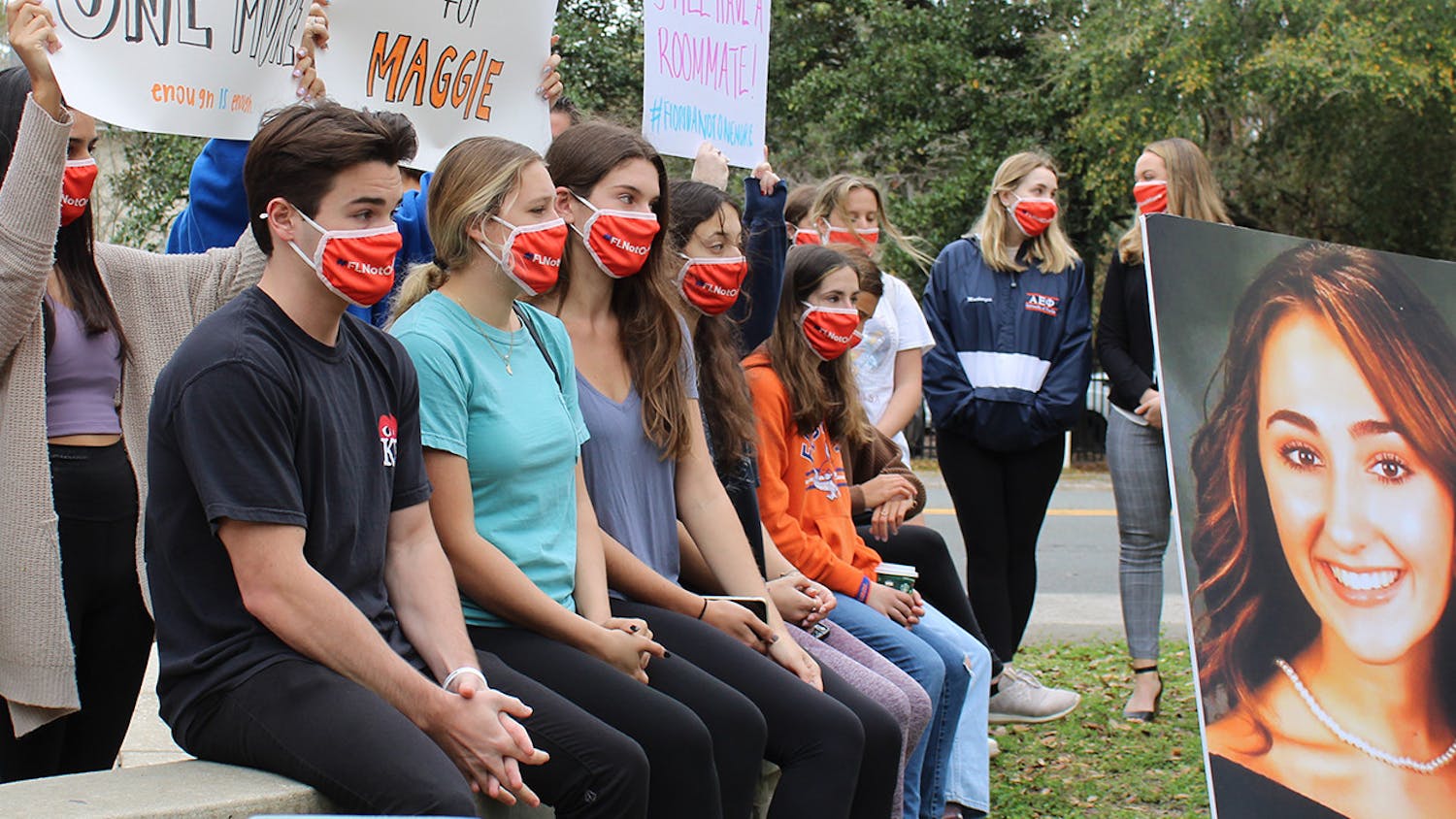
Justin Curtis is a 39-year-old adjusting to life in the free world after serving a 15-year prison sentence.
Justin Curtis was 9 when he first got on a skateboard. It was a new Santa Monica Airlines board, and its deck was painted like a panther. The moment the wheels hit the ground, he dreamed of becoming a professional skater. He spent all of his free time in the skate park and even competed when he was sponsored by 561 Skateboarding, a skate shop in Stuart, Florida.
Now Curtis, nicknamed “Skate,” is 39 and adjusting a world he hasn’t seen in 15 years. He took his last glimpse in 2005, when President George W. Bush was inaugurated into his second term, Hurricane Katrina and Wilma devastated the U.S. and YouTube was launched.
Curtis walked out of the gates of Columbia Correctional Institution in Lake City, Florida, on July 29 after 15 years behind bars. While at Columbia, inmates called Curtis “Skate” or “Skateboard” because of his lifelong passion for the sport.
Now, he’s adjusting to a world he hasn’t seen in over a decade that also changed drastically over the last six months. With the COVID-19 pandemic, ex-prisoners are facing more challenges than usual after being released.
Those recently released experience hurdles without an ID, address and method of transportation, said Karen Smith, an organizer with Florida Prisoner Solidarity in Gainesville. Smith added that some government offices, like the DMV, are closed or appointments are limited. People who would usually volunteer to drive a recently released prisoner may not be willing to now because of the pandemic, she said.
Curtis is rebuilding his life after an incident that led him to lose more than a decade outside the free world.
After a string of disputes with an ex-girlfriend, he said he hit her while drunk. At 23, a judge sentenced him to five years for the crime, but his sentence was extended to 15 years for violating parole.
When arrested, Curtis said he was only out for 50 days after a previous prison sentence. Three years earlier, he was charged with throwing a skateboard at the same ex-girlfriend’s car while it was parked at his residence, a crime for which he served two years and was expected to complete four years of probation.
To Curtis, skating was an escape from the walls of the B2 dorm in the prison. He spent time flipping through magazines like Thrasher, Maximum Rocknroll and Profane Existence.
“When I first started doing it, I kept a hold of magazines and mail — stuff I wanted to keep a hold of from the outside,” Curtis said. “But when my sentence changed to a 15 year release date, the stuff I loved started to have the opposite effect. I had to readjust my mindset. I realized that I wasn’t getting out anytime soon, so I stopped paying attention to what’s going on in the outside world. But skating is my life, and so I just kept talking about that for a while.”
While locked up, Curtis said his family stood by his side — even if they couldn’t visit often because of the distance. His mother died in 2004, and his father remains distant, but his uncle, aunt and cousins have been his support system.
“What I realized as far as relatives and friends is — and it took me a while to realize this — that at a certain point you have to actually come to grips with that you took yourself out of the situation,” Curtis said. “They didn’t leave you. You left them by the choice you made.”
He said they supported him when he was a tutor assistant helping other inmates get their GED diplomas and when he was shuffled around 12 times to various prisons in North Florida — whether for disciplinary reasons, good standing or no clear reason.
During his 12 transfers, Curtis said he witnessed all forms of inmate-on-inmate violence and abuse from guards.
“I’ve seen from verbal abuse to physical to mental, and it’s rampant.” Curtis said. “The psychological manipulation and psychological warfare tactics that the DOC uses to keep people in line. It keeps people divided.”
Curtis said he remembered an altercation at Liberty Correctional Institution in Bristol in 2011 where a correctional officer grabbed him by the throat, in which he reacted by putting the guard in a headlock. He said he did six months in closed management, a housing unit where inmates are locked down in a cell for 23 hours a day, after the incident.
“He just grabbed me by the throat for really no reason, or because he was in a bad mood, and that’s the thing, authority in that environment is ungodly,” he said. “It’s crazy. They can do what they want and there’s nobody to check it.”
Curtis said he returned to a closed management cell after organizing an inmate sit-down called “The 9-9-16.” The movement was inspired by talks of a national prison strike to pay homage to the 45th anniversary of the Attica Prison Riots, where the prisoners’ rights movement started in 1971.
The sit-down took place at Gulf Correctional Institution Annex in Wewahitchka on Sept. 9, 2016, Curtis said. Inmates refused to go to their job assignments, but Curtis said guards pointed guns at them and used excessive force, barging into dorms and shooting inmates with rubber bullets regardless if they participated in the sit-down or not.
Smith said she sent letters to many prisoners about the national prisoner strike in 2016. Curtis was one of the few who responded and with whom she kept in touch with throughout the years.
Curtis’ trip to closed management lasted a year-and-a-half because he said he was accused of inciting a riot. He made use of his time by writing a 40-page zine, also known as a personal magazine, titled “To Ruin and Redeem: How to Build a Constructive Mindset in Prison.” The text, published through Microcosm Publishing, is a narrative of his life story, experiences while locked up and plans after his release. He also took a social work psychology course.
To Smith, the state retaliated against Curtis, and other prisoners who participated in the strike, by placing them in closed management or transferring them to other prisons. She added that Curtis’ release date was pushed back because his gain time, or time earned for good behavior that can lead to an earlier release, was taken away.
Out of all Curtis’ time in the prison system, he said he witnessed intense violence his second time in closed management. He said he once had a cellmate, who was high on K2, a synthetic strand of marijuana, stab him in the arm, leg and chest. Curtis said he didn’t realize he was stabbed until he saw blood on his shorts when guards took him to medical.
Three years and many skate magazines later, Curtis heard that a virus affecting the entire world hit Florida: COVID-19. After learning about the virus through TV news and guards’ conversations, Curtis said he was concerned that he had the virus in January when he got sick and suffered from nausea and migraines.
The entire prison was quarantined in April after inmates transferred from Tomoka Correctional Institution in Daytona Beach tested positive for the virus, Curtis said. The B2 dorm was tested, but Curtis said none of his fellow inmates were told their results.
In May, prison staff supplied face masks that appeared to have been made from the blue prison uniform and required that inmates wear them, Curtis said. About a month later, the prison supplied Centers for Disease Control and Prevention-recommended masks. However, he said half of the officers didn’t wear masks to work.
“We are in a controlled environment, and there’s no way it [COVID-19] can come in there except through officers, nurses, and staff,” Curtis said.
Prisons are closed spaces where there’s limited access to personal protective equipment, such as masks, which contributes to the spread of the virus, according to a study put together by a health policy expert at John Hopkins University.
Prisoners are 5.5 times more likely to get infected by COVID-19 as well as three times more likely to die after testing positive. According to the study, they’re also at increased risk of cardiac and respiratory conditions.
In late July, prison staff also tried to split up inmates into a dorm for positive patients and another for those who tested negative, but Curtis said they placed positive patients into the dorm for those who tested negative.
They also tried to enforce social distancing, but it’s impossible to effectively maintain social distancing in prison, Curtis said. The only location social distancing is possible is in the chow hall because guards limited two inmates per table when the usual limit was four, he added.
To Curtis, guards loosened up and were mostly understanding of the difficulties inmates faced because of the virus.
Inmates were locked in the dorm while they played card games like Spades and Casino, role-playing games like Dungeons and Dragons, slept and kept busy, Curtis said.
During his last week at Columbia, he said he couldn’t believe his release date was approaching, 15 years after hearing his sentence from a judge.
Since being released, Curtis said he hasn’t felt overwhelmed adjusting to the world around him. When he stepped out onto the other side of the fence, he said he felt like his time behind bars was nothing more than a blip.
“What I realized to myself is that I’m not worried about anything anymore.” said Curtis. “I don’t stress, I’m going with the flow and I’m just hoping that everything works out.”
Curtis is the first person Florida Prisoner Solidarity in Gainesville has worked with during the release process, as the organization usually works with individuals who already completed their sentence and were already out, Smith said. When he reached out and wrote that he was going to be released, she said she asked him what type of clothing he liked and sizes, located transitional housing and coordinated a ride to pick him up from Columbia.
Along with the organization, Smith said she bought clothing, hygiene products and food and even provided a stipend to one of Curtis’ supporters who is helping him in his transition. The supporter will be helping him open a bank account and get an ID.
Curtis scheduled the earliest available appointment at the DMV to get his photo ID. Now living with friends in St. Petersburg as a free man, he said he recently interviewed for a prep cook position at a restaurant.
And Skate has now gotten back to his love — skateboarding. He said he has skated every day since his release but was disappointed when he found out that skate shops are mostly closed because of the pandemic.
While it’s strange to see bars almost empty, take his Motorola smartphone with him and pass by people wearing face masks when walking down the street, Curtis said he’s looking forward to rebuilding his life. He wants to build a relationship with his younger sister, whom he has only met four times, get back on his feet and live every day to the fullest.
“I kept a hold of myself all those years,” Curtis said. “I kept myself in check, and I didn’t let my environment dictate who I was. I didn’t let my circumstances overwhelm me to the point where I became somebody that I wasn’t. When I came out, it was like I was me again, you know. I’m still me. I am the same person I was but better.”





